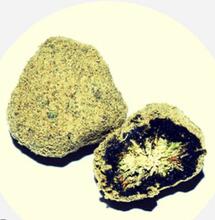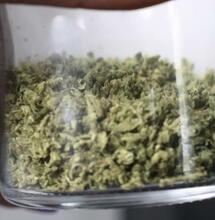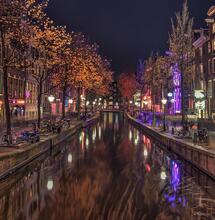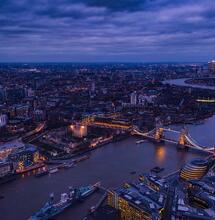How COVID has changed Amsterdam
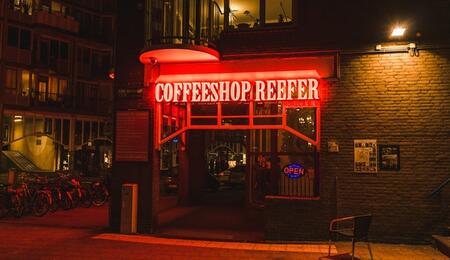
Once full of tourists, Amsterdam remains empty. Even as the Netherlands eases travel restrictions. What about the Coffeeshops? How have the city's cannabis-vending coffee shops survived during the pandemic?
Dutch coffee shops never closed entirely during the pandemic. They are classed as essential businesses, unlike restaurants, cafes and nightclubs.
Cannabis cafes have suffered due to the lack of tourist trade, responsible for a large share of their revenue. While some have adapted, there are fears that some may be in danger of closing.
"For business, it's been devastating," says Nick, a city centre coffee shop worker.
More than half of the capital's 167 coffee shops are in the centre of Amsterdam. According to Joachim Helms of the coffee shop owners' association BCD, they are heavily reliant on tourism.
"The coffee shops in the centre were really in survival mode [during the past two years]," he says. They struggled to make any revenue, only surviving due to Government financial aid, which covered their rent and staff leave.
When coronavirus overwhelmed Europe in March 2020, the Dutch government announced a strict lockdown and ordered all hospitality to close but not the coffee shops.
The worry was that people would turn to the streets and illegal dealers if they kept the coffee shops closed. Therefore, the shops were allowed to stay open for takeaway service, even during the strictest lockdowns.
While cafes have been empty over the past two years due to a lack of tourists, demand for cannabis has surged. Takeaway sales have increased significantly.
"In residential areas business has been especially good," says Helms. "Especially at the beginning of the pandemic, when people were stockpiling [cannabis] in case coffee shops closed during a lockdown."
In a survey by Trimbos, a Dutch mental health and addiction research institute, 41% of 1,563 respondents said they were using cannabis more since the coronavirus pandemic.
"The takeaway business has been excellent," says Maeve Larkin, who works in Hunters coffee shop in the centre. "People tend to buy larger amounts [than when they consume it in the cafe]."
Even though the lockdown has ended, strict rules remain for the entire Dutch hospitality sector. Coffee shops must stop serving at 10 p.m. but are allowed to stay open until midnight for takeout. All customers must show a vaccination pass, in the form of a QR code on their phones, to buy cannabis in a coffee shop, maintain a 1.5-meter distance while inside and wear masks while ordering.
These rules make it difficult for coffee shops to accommodate many customers and encourage people to stay inside instead of buying takeout. Helms says that lockdown restrictions have changed the culture of Amsterdam's coffee shops.
"The whole point of coffee shops in Amsterdam is the relaxed vibe and its culture. That's gone now," says Larkin.
"Now, there are just two people at a table. This cafe and the surrounding area used to be busy all the time, now it's just deserted."
"The rest of Europe and the rest of the world needs to know we are open again," says Nick. "I think it will be back to normal in mid-March."
As the coffee shops slowly begin their recovery, they face another hurdle.
In contrast, Amsterdam Mayor Femke Halsema has recently proposed an unpopular policy to ban foreign tourists from the city's coffee shops altogether. Other cities, including Rotterdam and Maastricht, have already introduced a ban in the south of the country.
The ban aims to make tourism in the centre more manageable and control the coffee shop supply chain, Halsema told councillors in a letter in 2019. She said coffee shops could put "the quality of life in the city centre under pressure."
Amsterdam has been struggling with mass tourism for years, alongside increasing discontentment among residents about loud noise, littering and unruly behaviour from tourists.
The City authorities are resolved not to return to the way things were before the pandemic. They have warned rowdy visitors and tourists intent on drinking and taking drugs to stay away.
In a government survey in August 2019, which questioned 1,100 international tourists between the ages of 18-35 who visited the Red Light District, 34% of respondents said they would come to Amsterdam less often if they weren't able to go to coffee shops, and 11% said they would not visit at all.
"If you [introduce] the tourist ban, the illegal market will get bigger," says Helms, adding that this happened in March 2020 when the government closed coffee shops.
"I can't see a tourist ban happening," says Helms. "It would be an awful decision for people living in the center of Amsterdam," he says.
It would also have an enormous effect on the thousands of people who work in coffee shops in the Dutch capital. "The coffee shop culture is so unique to Amsterdam. It would be unfortunate if it goes," says Larkin.

